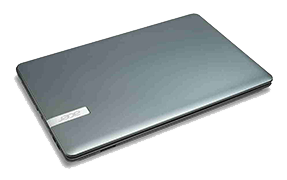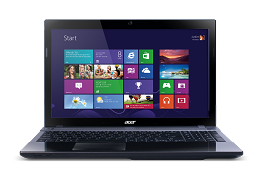Download Acer laptop and netbook drivers or install DriverPack Solution for automatic driver update. Acer laptop and netbook drivers. Install drivers automatically. Are you tired of looking for drivers? DriverPack will automatically select and install the required drivers. I have the same problem with my Acer Aspire M3920 (4 years old). The computer worked fine after upgrade to Win 10, but after I deleted all partitions and did a clean install of Win 10 the computer will not shut down completely. Power light is on and the fan is working, so I have to make a forced shut down.
Acer ePower Management, free download. Acer ePower Management 7.0.3006: For Acer system owners. It will enable the user to manage power plans. The profiles you make with Acer ePower Management will impact the brightness, CPU usage as well as the sleep time for the computer.
-->States S1, S2, S3, and S4 are the sleeping states. A system in one of these states is not performing any computational tasks and appears to be off. Unlike a system in the shutdown state (S5), however, a sleeping system retains memory state, either in RAM or on disk, as specified for each power state below in System hardware context sections. The operating system need not be rebooted to return the computer to the working state.
Some devices can wake the system from a sleeping state when certain events occur. In addition, on some computers, an external indicator tells the user that the system is merely sleeping.
With each successive sleep state, from S1 to S4, more of the computer is shut down. All ACPI-compliant computers shut off their processor clocks at S1 and lose system hardware context at S4 (unless a hibernate file is written before shutdown), as listed in the sections below.
Details of the intermediate sleep states can vary depending on how the manufacturer has designed the machine. For example, on some machines certain chips on the motherboard might lose power at S3, while on others such chips retain power until S4. Furthermore, some devices might be able to wake the system only from S1 and not from deeper sleep states.
Use powercfg /a to enumerate all available sleep states on a system. A user can specify the action to take when the sleep power button is pressed by using the Sleep button action.
Typically, when the user presses the sleep button, the system goes to the S3 system power state.
To restrict the system to a subset of Sx states, a user can provide MaxSleep and MinSleep fields in SYSTEM_POWER_POLICY structure. Also see ADMINISTRATOR_POWER_POLICY structure.
System Power State S1
System power state S1 is a sleeping state with the following characteristics:
Power consumption
Less consumption than in S0 and greater than in the other sleep states. Processor clock is off and bus clocks are stopped.
Software resumption
Control restarts where it left off.
Hardware latency
Typically no more than two seconds.
System hardware context
All context retained and maintained by hardware.
System Power State S2
System power state S2 is similar to S1 except that the CPU context and contents of the system cache are lost because the processor loses power. State S2 has the following characteristics:
Power consumption
Less consumption than in state S1 and greater than in S3. Processor is off. Bus clocks are stopped; some buses might lose power.
Software resumption
After wake-up, control starts from the processor's reset vector.
Hardware latency
Two seconds or more; greater than or equal to the latency for S1.
System hardware context
CPU context and system cache contents are lost.
System Power State S3
System power state S3 is a sleeping state with the following characteristics:
Power consumption
Less consumption than in state S2. Processor is off and some chips on the motherboard also might be off.
Software resumption
After the wake-up event, control starts from the processor's reset vector.
Hardware latency
Almost indistinguishable from S2.
System hardware context
Only system memory is retained. CPU context, cache contents, and chipset context are lost.
System Power State S4
System power state S4, the hibernate state, is the lowest-powered sleeping state and has the longest wake-up latency. To reduce power consumption to a minimum, the hardware powers off all devices. Operating system context, however, is maintained in a hibernate file (an image of memory) that the system writes to disk before entering the S4 state. Upon restart, the loader reads this file and jumps to the system's previous, prehibernation location.
If a computer in state S1, S2, or S3 loses all AC or battery power, it loses system hardware context and therefore must reboot to return to S0. A computer in state S4, however, can restart from its previous location even after it loses battery or AC power because operating system context is retained in the hibernate file. A computer in the hibernate state uses no power (with the possible exception of trickle current).
State S4 has the following characteristics:
Power consumption
Off, except for trickle current to the power button and similar devices.

Software resumption
System restarts from the saved hibernate file. If the hibernate file cannot be loaded, rebooting is required. Reconfiguring the hardware while the system is in the S4 state might result in changes that prevent the hibernate file from loading correctly.
Hardware latency
Long and undefined. Only physical interaction returns the system to the working state. Such interaction might include the user pressing the ON switch or, if the appropriate hardware is present and wake-up is enabled, an incoming ring for the modem or activity on a LAN. The machine can also awaken from a resume timer if the hardware supports it.
System hardware context
None retained in hardware. The system writes an image of memory in the hibernate file before powering down. When the operating system is loaded, it reads this file and jumps to its previous location.
Drivers for laptop Acer ACER POWER 1Fb: the following page shows a menu of 29 devices compatible with the laptop model ACER POWER 1Fb, manufactured by 'Acer'. To download the necessary driver, select a device from the menu below that you need a driver for and follow the link to download.
List of Acer ACER POWER 1Fb Devices
Hard Disk Controller2 Devices Found (Acer ACER POWER 1Fb)
|
USB Devices5 Devices Found (Acer ACER POWER 1Fb)
|
OthersAdvent eclipse e100 driver download. 2 Devices Found (Acer ACER POWER 1Fb)
|
Network Cards2 Devices Found (Acer ACER POWER 1Fb)
|
Motherboards4 Devices Found (Acer ACER POWER 1Fb)
|
Modems1 Devices Found (Acer ACER POWER 1Fb)
|
Mice & Touchpads1 Devices Found (Acer ACER POWER 1Fb)
|
Monitors1 Devices Found (Acer ACER POWER 1Fb)
|
Sound Cards & Media Devices1 Devices Found (Acer ACER POWER 1Fb)
|
Keyboards1 Devices Found (Acer ACER POWER 1Fb)
|
Video Cards4 Devices Found (Acer ACER POWER 1Fb)
|
Input Devices3 Devices Found (Acer ACER POWER 1Fb)
|


Port Devices2 Devices Found (Acer ACER POWER 1Fb)
|
Top Drivers for Acer ACER POWER 1Fb
We have compiled a list of the most popular drivers (according to downloading stats) for various devices installed to Acer ACER POWER 1Fb laptops. Once you find the needed driver in this list, feel free to download it directly from this page by clicking at ‘Download’ button.
Acer Power 1fb Drivers
| Device | Version | Date | Download |
| 3Dlabs Gamma Coprocessor for Oxygen GVX1 | 2.11.7.0 | 2014-01-02 | Download |
| Qualcomm Atheros AR5007EG Wireless Network Adapter | 7.080.0218.2014 | 2014-02-18 | Download |
| SiS PCI IDE-controller | 5.52.22 | 2013-01-03 | Download |
| IBM Netfinity 10/100 Ethernet-adapter | 2.6.2.3140 | 2013-01-22 | Download |
| HP LaserJet 1015 | 6.1.7600.16385 | 2006-06-21 | Download |
| USB MS/SD Card Readdr. | 9.3.139.0 | 2012-11-25 | Download |
| 6.2.9200.16384 | 2006-06-21 | Download | |
| Bridge Intel(R) 82801 PCI - 2448 | 5.820.1028.2013 | 2013-10-28 | Download |
| 3Com Bluetooth Serial Client (COM15) | 6.3.9600.30174 | 2014-01-03 | Download |
| Controller Enhanced Host USB Intel(R) famiglia chipset serie 5/serie 3400 - 3B34 | 8.15.10.2697 | 2012-03-23 | Download |